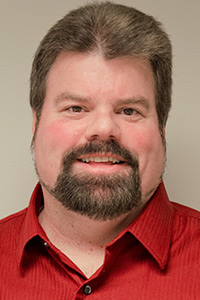With the majority of evangelical churches plateaued or declining, the thoughts of many church and denominational leaders turn to ways of renewing, reviving, or revitalizing these churches. The subject is broad and opinions vary. However, most agree that the church should be making disciples and this is the mission we cannot afford to neglect.

The North American Mission Board is sponsoring a series of one-day “Church Growth and Revitalization” conferences across the country. Each conference runs from 9 a.m. to 4 p.m. and is led by Johnny Hunt, pastor of Woodstock Baptist Church, and Larry Wynn, vice president of evangelism at NAMB.
The conference for South Carolina will be hosted by White Oak Conference Center on May 23. The presenter is Johnny Hunt. Registration begins at 8 a.m. with a $30 charge per participant, which includes notebook, lunch, refreshments and a $15 LifeWay gift card.
While 72 percent of Southern Baptist churches are either plateaued or declining, South Carolina Baptist Convention churches were near 78 percent a few years ago when David Parks, SCBC associate executive director for church strengthening and support, did some random sampling.
As denominations and churches look for solutions to the challenges of plateaued and declining churches, the problem persists. Parks said, “I believe we are changing for the better, but the change is slow in coming.” What are the obstacles? Parks’ answer, in part, is, “There seems to be great uncertainty and confusion about what discipleship is and is not. The objective of discipleship is not just getting more spiritual information, but transformation. Many churches lack a clear vision of what discipleship is, and they fail to understand that disciple-making is their mission.”
He believes prayer is foundational, and transformation takes time. “We have learned that many pastors have never been discipled, so they do not understand discipleship, its value, or its process. They are under pressure to grow the church numerically, and, as a result, they do not seek to develop disciples. I don’t think our focus is on growing disciples, for the most part.”
If the commission of the church is to make disciples and we fail in that essential mission, what will be the future of our churches? Parks observed, “For years our focus has been on ‘doing’ church, but I believe the new paradigm we must embrace is all about ‘being’ the church.”
George Barna’s recent research indicates that Mosaics (millennials) – people born between 1984 and 2002 – are more open to the Bible than the adult population in general. Forty percent are interested in the Bible’s wisdom on dealing with illness and death, compared to 28 percent of all adults. Thirty-five percent want to know the Bible’s perspective on dating and relationships, and 42 percent are interested in what the Bible says about parenting. Seventy-nine percent own a Bible.
 Parks
ParksThis generation contains those people who will help compose the future church. Will today’s church be able to disciple them? Parks thinks it is possible. “They tend to be more open to biblical truth, but not necessarily to church. This group craves relationship, and in many churches meaningful relationships are hard to develop. Unlike previous generations, they want to be involved before they join. Their quickest connection is with relational small groups. Churches that are reaching this age group have figured out how to connect them to small groups.”
How do you determine when a church is plateaued or declining? Is there a metric or standard for making that decision? Parks uses a definition developed by Cliff Tharpe: “Growing churches are those whose total membership increased at least 10 percent over five years, while declining churches are those whose total membership decreased at least 10 percent over five years. A plateaued church is one that is in neither the growing nor declining category.”
Parks emphasized that a strong church has “all six functions of the church (evangelism, discipleship, fellowship, prayer, ministry and worship) at a healthy level and in balance.” The measure of a church, he says, is not the number of baptisms they have but how many disciples they are developing. “Discipleship is the key function.”
Conferences like the one at White Oak can help, but as Parks pointed out, “We do way too much in the church that we can do without God. We must rely on the Lord rather than serving in our own strength.”
The church health and Cooperative Program office of the SCBC offers three different church health processes to assist churches in their goal to become healthier: ICMP, CHAMPS, and Transformational Church.
– Parks joined the SCBC staff Jan. 1, 2009. Previously, he had served as executive pastor of Mount Pleasant Baptist Church near Richmond, Va. He and his wife, Tami, have been married for 23 years and have three children – Joshua, Sarah and Hannah. He is a graduate of North Carolina State University and Southeastern Baptist Theological Seminary.
